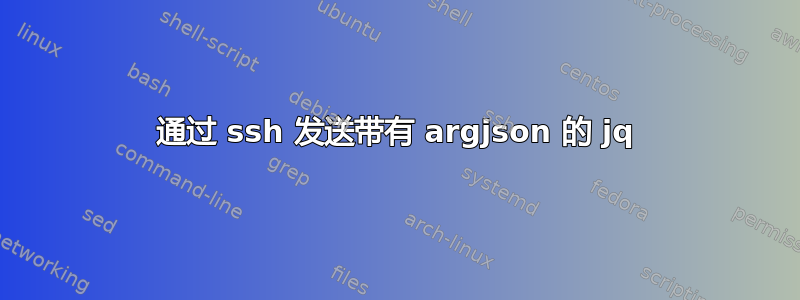
我正在尝试通过 ssh 运行 jq 命令来获取此 JSON:
{
"nodes": {
"app": {
"nodes": 1,
"is_manager": true,
"ip": [
"0.0.0.0"
],
"cpus": 16,
"memory": 64
},
"data": {
"nodes": 1,
"ip": [
"0.0.0.0"
],
"cpus": 16,
"memory": 64
},
"analysis": {
"nodes": 1,
"ip": [
"0.0.0.0"
],
"cpus": 16,
"memory": 64
},
"elastic_kafka_1": {
"nodes": 1,
"ip": [
"0.0.0.0"
],
"cpus": 16,
"memory": 64
},
"elastic_kafka_2": {
"nodes": 1,
"ip": [
"0.0.0.0"
],
"cpus": 16,
"memory": 64
},
"elastic_kafka_3": {
"nodes": 1,
"ip": [
"0.0.0.0"
],
"cpus": 16,
"memory": 64
},
"master": {
"nodes": 1,
"ip": [
"0.0.0.0"
],
"cpus": 16,
"memory": 64
}
}
}
这就是我正在尝试运行的:
ssh -o StrictHostKeyChecking=no -i key.pem user@"172.13.1.23"
"jq -Rn --argjson original_doc \"\$(<nodes.json)\" '
input | split(\"\u0000\") as \$ips
| \$original_doc
| .nodes.app.ip = \$ips[0]
| .nodes.data.ip = \$ips[1]
| .nodes.analysis.ip = \$ips[2]
| .nodes.elastic_kafka_1.ip = \$ips[3]
| .nodes.elastic_kafka_2.ip = \$ips[4]
| .nodes.elastic_kafka_3.ip = \$ips[5]
| .nodes.master.ip = \$ips[6]
' < <(printf '%s\0' \"\${GCP_INSTANCES[@]}\") > test.json && mv test.json nodes.json"
这是一个输出:
{
"nodes": {
"app": {
"nodes": 1,
"is_manager": true,
"ip": "",
"cpus": 16,
"memory": 64
},
"data": {
"nodes": 1,
"ip": "",
"cpus": 16,
"memory": 64
},
"analysis": {
"nodes": 1,
"ip": null,
"cpus": 16,
"memory": 64
},
"elastic_kafka_1": {
"nodes": 1,
"ip": null,
"cpus": 16,
"memory": 64
},
"elastic_kafka_2": {
"nodes": 1,
"ip": null,
"cpus": 16,
"memory": 64
},
"elastic_kafka_3": {
"nodes": 1,
"ip": null,
"cpus": 16,
"memory": 64
},
"master": {
"nodes": 1,
"ip": null,
"cpus": 16,
"memory": 64
}
}
}
正如您所看到的,由于 ssh 或其他问题的语法问题,jq 无法正常工作。
我在本地测试了这个命令,没有使用ssh,并且可以正常工作。
我认为问题出在 printf '%s\0' 上,但无法弄清楚我到底做错了什么。
答案1
确保所有引用正确完成的最简单方法是让 shell 为您完成此操作,方法是使用declare -f生成已本地定义函数的文本表示,并declare -p生成函数所需的任何局部变量的文本表示进入。因此:
doRemoteWork() {
jq -Rn --argjson original_doc "$(<nodes.json)" '
input | split("\u0000") as $ips
| $original_doc
| .nodes.app.ip = $ips[0]
| .nodes.data.ip = $ips[1]
| .nodes.analysis.ip = $ips[2]
| .nodes.elastic_kafka_1.ip = $ips[3]
| .nodes.elastic_kafka_2.ip = $ips[4]
| .nodes.elastic_kafka_3.ip = $ips[5]
| .nodes.master.ip = $ips[6]
' < <(printf '%s\0' "${GCP_INSTANCES[@]}") >"nodes.json.$$" \
&& mv "nodes.json.$$" nodes.json
}
ssh -o StrictHostKeyChecking=no -i key.pem [email protected] \
"$(declare -p GCP_INSTANCES; declare -f doRemoteWork); doRemoteWork"
答案2
一个明显的替代方法是承担繁重的工作本地。
ssh remote-host 'cat our-document.json' |
jq 'expression...expression...expression' |
ssh remote-host 'cat >tmfile && mv tmpfile our-document.json'


